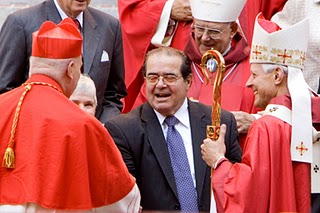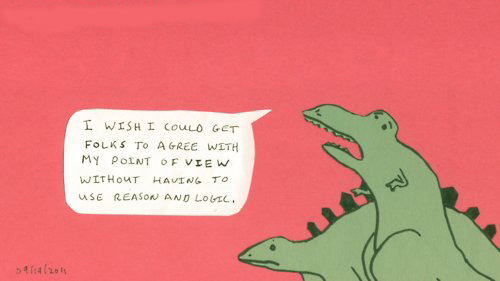Msgr. William J. Lynn, the former church official awaiting trial for allegedly protecting sexually abusive priests, drew words of encouragement from Philadelphia’s new archbishop and a standing ovation from scores of priests at a private gathering last month, according to people familiar with the event.
During the invitation-only dinner for Archbishop Charles J. Chaput at a parish hall in Montgomery County, Chaput singled out Lynn in the crowd and noted how difficult the ordeal has been for him, according to one priest who attended and two people briefed by others at the gala.
Much of the audience, which included hundreds of priests, then stood and applauded, said the sources, who asked not to be identified.
The exchange, in a banquet room at St. Helena’s in Blue Bell, spanned just seconds in a talk by Chaput on changes and his vision for the Archdiocese of Philadelphia. But it reflected one of the strongest signals of support for Lynn since his arrest and suspension from ministry in February.
It came as Chaput, who last month took the helm of the 1.5 million-member archdiocese, strives to bond with his new flock and the hundreds of priests who are the face of the church in the region’s towns and parishes.
Told how sources described the event, Donna Farrell, a spokeswoman for the archdiocese, declined this week to discuss what she said was a private gathering for Chaput and the priests. She said Chaput was away at a retreat and would not elaborate on his remarks.
Chaput, who previously headed the Archdiocese of Denver, has spoken only sparingly of the sex-abuse allegations involving the Philadelphia priests, saying he needed time to absorb the facts and issues.
But in an interview with the Associated Press the day before his Sept. 8 installation, Chaput said of the case against Lynn: “It’s really important to me, and I think to all of us, that he be treated fairly and that he not be a scapegoat.”
Jeffrey Lindy, one of Lynn’s defense attorneys, said he was gratified to hear about the ovation for the monsignor. “He’s a real good person,” Lindy said.
Citing a gag order in the case, a spokeswoman for Philadelphia District Attorney Seth Williams said Tuesday that the office had no comment.
Lynn, 60, faces a March trial in Philadelphia, along with two priests, a defrocked priest, and a former Catholic school teacher.
Two of the clerics and the teacher are charged with raping a 10-year-old altar boy at St. Jerome’s, a Northeast Philadelphia parish in the late 1990s. The other priest allegedly molested a 14-year-old boy at his apartment in 1996.
Lynn is not accused of assaulting children, but rather of conspiracy and endangerment for taking steps that enabled the other priests to allegedly molest the boys.
As the secretary for clergy from 1992 until 2004, he recommended where archdiocesan priests are assigned. That included assignments for those who had previously been accused of molesting children. He is believed to be the first church official in the nation charged with covering up clergy sex abuse.
When he announced the charges in February, Williams, the prosecutor, said Lynn “went out of his way to put known abusers into contact with adolescents.”
Lindy and Thomas Bergstrom, Lynn’s attorneys, have called the allegations untrue, unfair, and the product of overzealous prosecutors.
The archdiocese is paying their fees.
After Lynn’s arrest, some parishioners at St. Joseph’s in Downingtown, where he has been pastor since 2002, praised his work there. And several priests have attended his pretrial hearings, flanking him outside the courtroom.
The criminal charges accompanied a grand jury report that accused the archdiocese of failing in its efforts to root out abusive priests and help victims.
Responding to that report, Chaput’s predecessor, Cardinal Justin Rigali, placed two dozen other priests on administrative leave while the archdiocese reexamines old allegations that they sexually abused or acted inappropriately around children. Those reviews are pending.
Like Lynn, the suspended priests are barred from publicly celebrating Mass, ministering as a priest, or returning to their parishes. But Lynn and many of the others on leave were invited to the dinner for Chaput in the week after his Sept. 8 installation. Some but not all the suspended priests attended, the sources said.
The arrests and suspensions rocked the archdiocese and strained the relationship between the administration and some parish priests.
In July, scores of area priests formed an independent group, the Association of Philadelphia Priests, to unite their interests and serve as an advocate for priests’ rights and church reform. The leaders of the group met privately with Chaput last month and found him to be “open, supportive, and encouraging,” according to a note posted on their website.
In his remarks to the Associated Press about Lynn, Chaput also said it was important that “those that are conducting the trial treat him fairly, and that they don’t pore into his life responsibility for things he didn’t do.”
Last month, Lynn’s attorneys asked Common Pleas Court Judge M. Teresa Sarmina to dismiss the charges, move the trial out of the region, or at least lift her gag order, which bars the defendants and attorneys from publicly commenting on the case.
In their motions, Bergstrom and Lindy complained that court filings by prosecutors had “created a one-sided, and, in certain cases, a distorted view” of Lynn and grand jury testimony he gave seven years ago about his handling of abuse accusations.
Sarmina could rule on those motions Friday, when all sides are due in her courtroom for a status hearing.
Also pending is a request by prosecutors to question Rigali’s predecessor, Cardinal Anthony J. Bevilacqua, in open court. His attorney has argued that the 88-year-old cardinal, suffering from dementia and cancer, is unfit to testify.
Sarmina postponed a hearing on the matter last month.
Full Article HERE!





